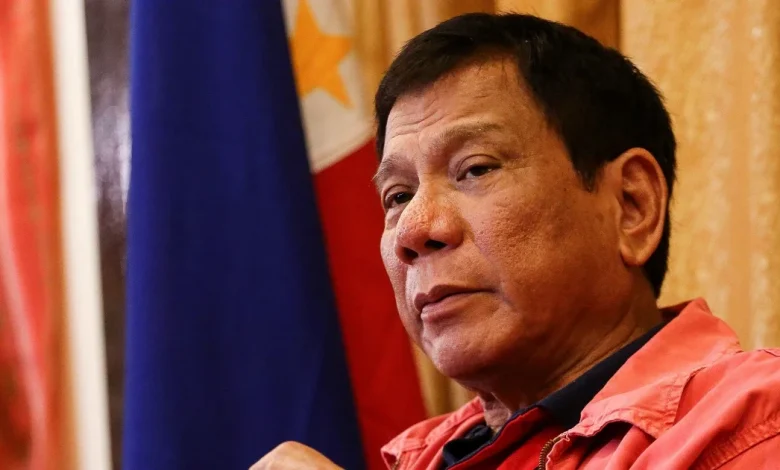ICC judges reject request to release former Philippine President Duterte

Former Philippine President Rodrigo Duterte will remain in detention at the International Criminal Court after appeals judges on Friday rejected a request to release him on health grounds.
The octogenarian is facing charges of crimes against humanity for his alleged involvement in dozens of killings as part of his so-called war on drugs when in office, first as the mayor of a southern city and later as president.
Duterte’s lawyers failed to show that an October decision by lower chamber was unreasonable, Judge Luz del Carmen Ibáñez Carranza said, addressing the full courtroom in The Hague.
The former president was not in court on Friday.
Last month, judges decided to keep Duterte in custody, finding that he was likely to refuse to return for trial and could use his freedom to intimidate witnesses.
According to court filings, Duterte instructed and authorized “violent acts including murder to be committed against alleged criminals, including alleged drug dealers and users.” The charges against him date from Nov. 1, 2011, when he was still mayor of the southern city of Davao, to March 16, 2019, when the country withdrew from the court.
Estimates of the death toll during Duterte’s presidential term vary. National police put the figure at more than 6,000, while human rights groups claim up to 30,000. Families of victims hailed Duterte’s arrest in March.
Duterte’s lawyers say he is “infirm and debilitated” and that it is cruel to keep him in custody during the trial. In September the court postponed a pretrial hearing until a full medical assessment could be made. According to defense filings, Duterte’s cognitive faculties have declined to a level that he cannot assist his lawyers.
The legal team requested that he be transferred to the custody of another member state while proceedings continue. However the appeals judges agreed with the lower chamber that the risk posed by his released “could not be mitigated” by the undisclosed country, Judge Ibáñez said.
Last month, judges also rejected a challenge to their jurisdiction in the case.
ICC prosecutors announced in February 2018 that they would open a preliminary investigation into the violence that took place during Duterte’s time in power. In a move that human rights activists say was aimed at escaping accountability, Duterte, who was still president, announced a month later that the Philippines would leave the court.
Countries can’t abuse their right to withdraw from the Rome Statute, the court’s founding document, “by shielding persons from justice in relation to alleged crimes that are already under consideration,” judges wrote in the October ruling. Duterte’s legal team has appealed this decision as well.
The Duterte administration moved to suspend the global court’s investigation before, arguing in late 2021 that Philippine authorities were already looking into the same allegations and the ICC — a court of last resort — therefore didn’t have jurisdiction.
Appeals judges at the ICC rejected those arguments and ruled in 2023 that the investigation could resume.





